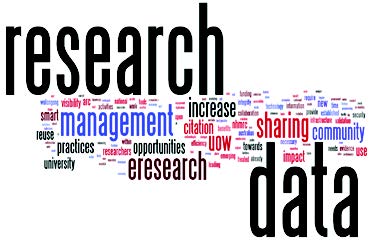By Katie Elcombe and Despina Clancy. This article was first published in the Nov-Dec 2011 edition of UOW’s Innovation and Research Magazine.

It has never been more important than now to ensure that data management is at the forefront of research practices.
Trends in the current global research environment have led towards rapid advances in technology that have taken research efficiency and data management to a new level. The US and UK are leading the way in this emerging field by already promoting the sharing and open use of government data. Within Australia, we have seen the creation of the Australian National Data Service (ANDS) which was established to provide best practice around data management and to ensure that research data collections are treated as national resources.
Unfortunately, the loss and ineffective management of research data is still a reality. Poor data management practices place research data at risk of theft, failure and misuse which leads to the questioning of methodologies and the validation of results. Through the implementation of necessary data management practices, the possibilities of sharing, re-using and transforming research data presents limitless opportunities. Research data is a valuable asset and needs to be treated as such.
Managing Research Data: The Benefits
- Contributing to the community of thought: Sharing data will assist towards speeding up new scientific discoveries. It will enable the easy accessibility of research data which will increase research efficiency and the unearthing of new breakthroughs.
- Guaranteeing the integrity and security of your work: The loss of a researcher’s life work is devastating. Poor data management practices increase the chances of research data loss, corruption, misplacement or perhaps even theft. The building of research data infrastructure and the use of a central repository with continued backups will ensure that does not happen to any researcher.
- Getting the most from your time: Duplication of research data collection will also be minimised. More time can be spent on analysis of research rather than sometimes expensive and needless data gathering activities. Likewise, when data is shared and re-analysed, this will add to the validation of original findings.
- Increasing the visibility and impact of research: Evidence has shown that the sharing of research data can increase citation rates. For emerging researchers, this will be essential in making their mark in an increasingly competitive research market.
- Enhancing collaboration opportunities: Through the use of centralised data repositories, visible data by researchers will certainly increase the impact of their research and open the door towards more collaboration opportunities across disciplines.
- Satisfying funding requirements: Funding bodies and governments are moving rapidly to require sound data management. In the near future the ARC and the NHMRC are likely to require greater evidence of data management planning. Institutions which are ahead of the curve in this space will ultimately benefit.
Research Data Management at UOW
The University is committed to the provision of technology that will grow our already impressive reputation for research excellence. Sharing of knowledge and an investment in tools and services surrounding information management will ensure that UOW retains its position as a leading research institution.
The next steps are to coordinate all facets of the research community through engagement and to ensure that the needs of our researchers are met. The recently drafted UOW Research Data Management Policy was developed to be consistent with relevant legislation (i.e. the Australian Code for the Responsible Conduct of Research, 2007) and to provide the necessary mandate to establish a best-practice culture within the University’s research community. Concurrently, the SMART Infrastructure Facility has established a data management team to support SMART’s research activities. It is envisaged that, once operationalised, the SMART data management model will be considered as a prototype for potential application to the wider university research community.
